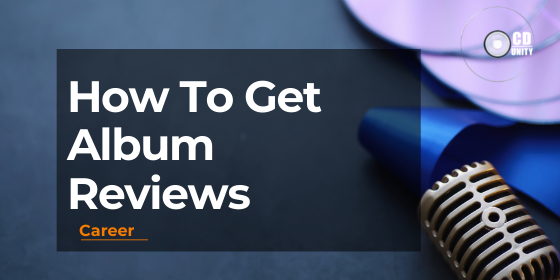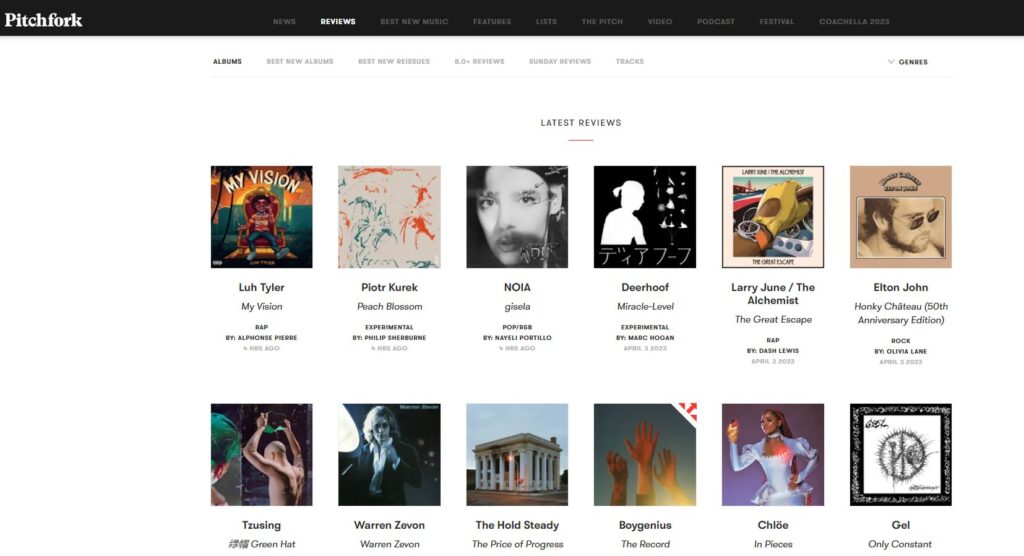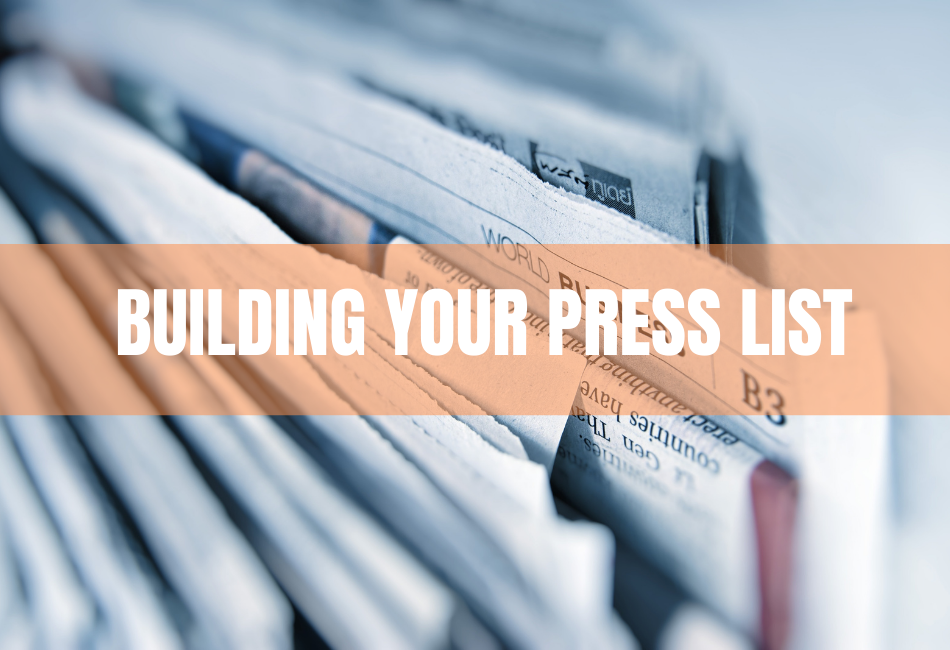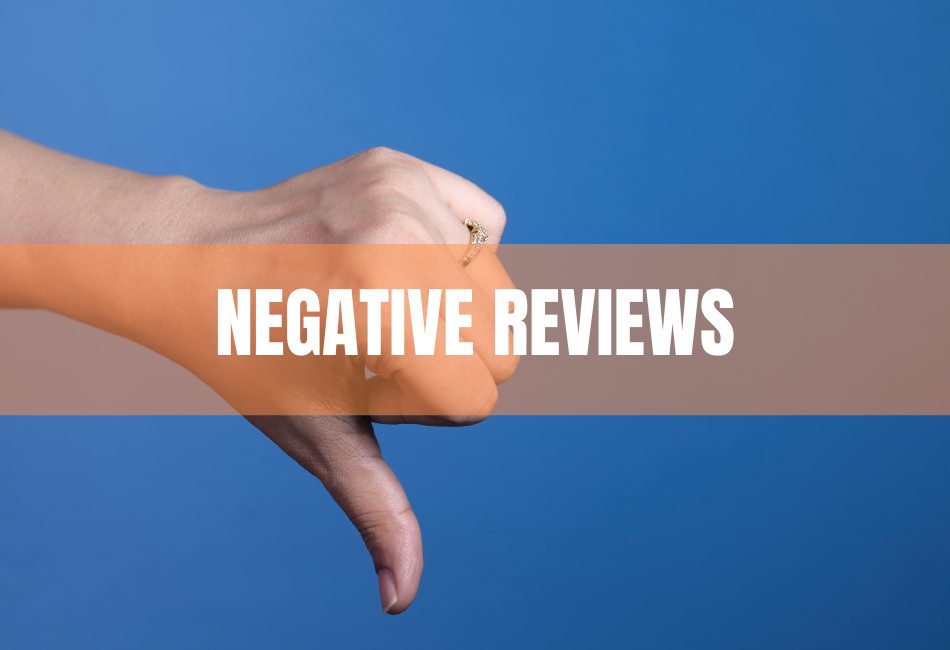
How To Get Album Reviews. Success in the Music Industry
Are you an aspiring musician eager to have your album reviewed by top industry publications and bloggers? Look no further!
In this blog post, we’ll reveal the secret sauce behind getting your album noticed, discussed, and praised.
From building a targeted press list to handling negative feedback with grace, we’ve got you covered. Ready to take the first step towards widespread recognition?
Read on and master the art of scoring those valuable album reviews!
Table of Contents
How To Get Album Reviews And Why They Matter For Musicians
Album reviews are crucial for musicians as they help in building credibility and buzz, increasing exposure and fanbase, and providing constructive feedback.
Building Credibility And Buzz
Building credibility and buzz for your music is an essential step in achieving success as a musician.
A strong album review can be incredibly impactful, showcasing you as a serious artist who’s passionate about their craft. Positive reviews from respected sources can build excitement around your release and work wonders in increasing word-of-mouth promotion.
One of the main benefits of scoring good album reviews is that they tend to create a snowball effect – once one reputable publication covers your music, other outlets are more likely to follow suit.
This domino effect not only increases your credibility but can also significantly expand your fan base.
For example, an indie band may submit their debut EP to Pitchfork or NME and receive high praise – this kind of recognition has been known to propel many artists into mainstream success, leading to greater opportunities such as festival slots and prestigious gigs.

Increased Exposure And Fanbase
Having your album reviewed can lead to a significant increase in exposure and growth of your fanbase. It’s no secret that the music industry is highly competitive, with countless artists vying for attention from listeners, music journalists and bloggers.
When you submit your album for review to reputable publications or online platforms like Pitchfork or Bandcamp, it provides an opportunity for more people to discover your music – including those who actively seek out new tunes from trusted sources.
Consider this: when someone stumbles upon a positive review of your album on their favourite blog or magazine, they’re likely to take notice and give it a listen. If they enjoy what they hear, there’s a good chance that they will share the review with friends or followers on social media – further increasing awareness about your music among potential fans.
This domino effect can go beyond individual listeners too; if influential tastemakers such as radio DJs come across glowing reviews of your work, it may encourage them to spin some tracks during their shows – opening up even more opportunities for people to encounter and appreciate your talent.
Constructive Feedback
Receiving constructive feedback is an invaluable aspect of submitting your music for review. Music reviewers can provide objective insight into the strengths and weaknesses of your music, allowing you to refine and improve your craft.
Constructive criticism can also help you identify aspects that resonate with listeners and those that may need improvement.
One example of helpful feedback from a review could be a suggestion to vary the pacing of the songs on your album or to add more dynamic range. Another reviewer might highlight how the lyrics in one song stand out as particularly impactful while encouraging you to explore new themes in future work.
It’s important to approach reviews with an open mind and consider all critiques thoughtfully, even if it stings at first. Remember that every artist receives negative reviews at some point, but focusing on incorporating constructive suggestions into future work will help you grow as a musician.

Researching And Building Your Press List
Researching and building your press list involves finding relevant outlets and journalists, personalizing your pitch, and following up on submissions.
Finding Relevant Outlets And Journalists
When looking for outlets and journalists to pitch your album to, it’s important to do your research and find ones that align with your genre and style. Here are some tips:
1. Look for publications and reviewers who have covered similar artists or albums in your genre.
2. Check out music blogs and magazines that focus on independent or up-and-coming artists.
3. Research social media groups or communities that cater to musicians in your niche.
4. Use databases like SubmitHub or Hype Machine to discover new music bloggers and submit your album directly.
5. Build relationships with journalists by following them on social media, engaging with their content and sharing their work if you enjoy it.
Remember, not every outlet will be interested in reviewing your album, so it’s important to tailor your pitch to each individual recipient’s preferences and interests. With some persistence, research and a clear pitch, you can find the right outlets and journalists to help promote your music.
Personalizing Your Pitch And Building Relationships
When submitting your album for review, personalizing your pitch and building relationships with journalists and bloggers can greatly increase your chances of getting a review.
Start by researching the publications you want to submit to, finding relevant outlets that cover your genre or style of music. Take time to read their content and understand their voice and tone.
Once you have identified potential reviewers, personalize your pitch by addressing them by name and referencing specific articles they have written or shared on social media. Share how you found them and highlight why you think they would be interested in reviewing your album.
Building a genuine relationship with reviewers takes time, so avoid being pushy or overly promotional in your emails.
By personalizing each pitch and building lasting relationships with reviewers, you can increase exposure for yourself as an artist while increasing the likelihood of getting a valuable review from trusted sources. Remember that relationships matter in the music industry, so take care to follow up after submitting your album for review.
Thank them for considering it and ask if they need any additional information or materials from you.
Following Up On Submissions
Once you’ve submitted your album for review, it’s important to follow up with the publication or reviewer.
Waiting for a response can take time, so give it a week or two before following up.
Be courteous and polite in your message, thanking them for their consideration and asking if they have had a chance to listen to the album.
If you don’t hear back after one or two follow-ups, it’s best to move on and focus on submitting to other publications.
However, if you do get a response, be prepared to discuss any questions or concerns they may have about the album.
Remember that reviewers are often busy and receive many submissions each day, so don’t be pushy or demanding.
In some cases, following up can lead to helpful feedback even if your album doesn’t end up getting reviewed.
Be open-minded and willing to learn from constructive criticism as it can help improve future releases.
Overall, persistence and professionalism go a long way when it comes to following up on album submissions.

Crafting A Strong Pitch
Crafting a strong pitch is vital to catch the attention of music journalists and bloggers, and should include a compelling subject line, key information about your album, and links to your music and press kit.
Creating A Compelling Subject Line And Introduction
When it comes to getting your album reviewed, your pitch email’s subject line and introduction are key.
You want to make sure they pique the interest of the reviewer and stand out in their inbox amongst other submissions.
One way to do this is by highlighting a unique aspect of your album or musical style in the subject line, such as “New Album Fuses Jazz and Electronic Music.”
In the introduction, be concise but informative about who you are as an artist and what sets your music apart from others in your genre.
It’s also important to keep in mind that reviewers receive many submissions daily, so avoiding generic or overused phrases like “check out my new album” can help increase your chances of standing out.
Instead, show enthusiasm for why you believe they would enjoy listening to your music or how it aligns with their publication’s interests.
For example: “I came across [publication name] while researching independent music blogs and knew my blend of folk-inspired songwriting would resonate with its readership.”
By personalizing each submission, you’re more likely to catch a potential reviewer’s eye and get them excited about discovering new music.
Remember that crafting a strong subject line and email introduction takes time but can ultimately pay off in securing reviews for your album.
Highlighting Key Information About Your Album
When submitting your album for review, it’s important to highlight key information that can make your album stand out to music journalists and bloggers. Here are some key pieces of information to include in your submission:
1. Album title and release date
– Let the reviewer know what they’re listening to and when it will be available to the public.
2. Genre and style
– Provide a description of your music style, including genre influences or comparisons to other artists.
3. Production credits
– Highlight any notable producers, engineers or collaborators involved in making the album.
4. Standout tracks
– Identify any standout tracks or singles that could catch the reviewers’ attention.
5. Backstory or concept
– Share any interesting backstory or concept behind the album’s creation that could help contextualize the music for the reviewer.
6. Social media handles and website links
– Provide easy-to-find links to your social media profiles and artist website so reviewers can learn more about you as an artist.
Remember, keep this information concise and clear in your pitch email or press kit. Providing too much information can overwhelm reviewers and hurt your chances of being reviewed.
Providing Links To Your Music And Press Kit
When submitting your album for review, providing links to your music and press kit is crucial.
Make sure these links are easily accessible and organized in a clear manner. This allows reviewers to quickly access your music and media assets without having to search for them.
Include direct streaming links to platforms like Bandcamp or SoundCloud, as well as high-quality downloads in WAV format. Additionally, provide a link to your electronic press kit (EPK) that includes relevant information about the album, such as lyrics, liner notes, and bios.
By making it easy for reviewers to access your music and media assets, you increase the likelihood of getting reviewed while also demonstrating professionalism as an artist.
Keep in mind that first impressions matter when reaching out for reviews, so take the time to ensure all links are working properly before submitting.

Submitting Your Album For Review
When submitting your album for review, be sure to follow the submission guidelines and formats provided by the publication, and consider using music review sites and indie blogs to increase your chances of being reviewed.
Following Submission Guidelines And Formats
When submitting your album for review, it’s important to follow the submission guidelines and formats. Here are some tips on how to do this:
1. Research the publication or reviewer you are submitting your album to and be sure to follow their specific submission guidelines. This may include preferred file formats, word counts, and other details that they require.
2. Make sure your music is easily accessible by providing a streaming link or download option in the format requested. If the publication requests physical copies, be sure to send them with a cover letter and press kit.
3. Double-check all of your submission materials before sending them out to ensure that they meet the guidelines provided by the publication. This includes checking for typos, formatting errors, and any other issues that could detract from your submission.
4. Be patient while waiting for a response from publications, as it may take several weeks or more for them to listen to your album and write a review.
By following these guidelines and formats when submitting your album for review, you can increase your chances of getting reviewed by top publications and bloggers in the music industry.
Using Music Review Sites And Indie Blogs
I highly recommend using music review sites and indie blogs to submit your album for review.
These platforms offer an excellent opportunity for independent artists to get their music reviewed by experienced writers and critics, which can lead to increased exposure and fanbase.
Music review sites like Stereogum, Consequence of Sound, and Rolling Stone cater to a wide range of genres, making it easier to find the right channel for your music.
Indie blogs are also a great option as they tend to have a more niche audience that may be interested in discovering new artists.
Sites like Hype Machine curate some of the best indie blogs online while SubmitHub offers an efficient way of submitting tracks directly to bloggers.
Before submitting your album or EP through these channels, it’s important to research their submission guidelines carefully.
Some will accept digital submissions only while others require physical copies.
Remember that getting reviewed on larger platforms like Pitchfork can be competitive so persistence is key.
It’s worth noting that some indie review sites offer free reviews for independent artists but always do your due diligence and research their legitimacy before submitting your work.
Sending Physical Copies And Following Up
Sending physical copies of your album can be a great way to get it reviewed.
Some music publications and bloggers prefer to receive physical copies rather than digital files, as they feel more tangible and personal.
However, it’s important to research the submission guidelines for each publication or blogger you are targeting, as some may prefer digital submissions only.
When sending physical copies, make sure they are packaged securely and labelled with all necessary information such as artist name, album title, contact information etc.
It’s also a good idea to include a short note thanking them for considering your album for review.
Following up after sending physical copies is also important but give them time before sending follow-up emails or messages.
Keep in mind that mailing out physical copies can take longer for publications/bloggers to listen and review so don’t expect quick responses.
With that being said, giving one gentle nudge via email regarding your initial pitch is perfectly acceptable after about two weeks have passed since you sent the copy – only if there’s no response yet though!

Using Social Media To Your Advantage
Engage with fans and influencers on social media by sharing press features and reviews, building relationships with influencers, and creating a buzz around your music.
Engaging With Fans And Influencers
Engaging with your fans and influencers is key to building lasting relationships and growing your audience.
Social media platforms like Facebook, Twitter, and Instagram are great places to start engaging with your fans by sharing news about your music, upcoming shows, and behind-the-scenes content.
Responding to comments and messages in a timely manner can also help build trust and loyalty among your fan base.
In addition to engaging with fans, it’s important for musicians to connect with influencers who can help amplify their message to a wider audience.
These could be podcasters, bloggers or other musicians who have large followings on social media.
A genuine connection is important when reaching out to influencers – take the time to listen to their content before reaching out so you can tailor your approach accordingly.
Sharing positive reviews from influencers on social media profiles can also increase credibility and expose new audiences to your music.
Sharing Press Features And Reviews
Sharing press features and reviews is a great way for musicians to promote their music and build credibility.
You can share your reviews on social media, your website, or even use them in promotional materials like posters or flyers.
It’s important to showcase your positive feedback and continue to build relationships with the publications that feature you.
For example, if you’re featured in a magazine or blog, make sure to thank the writer and tag them on social media when sharing the article.
This helps show gratitude and also encourages engagement from their audience as well.
Don’t be afraid to reach out to other influencers in the industry and see if they’d be interested in sharing your review on their platforms as well.
Remember that not all reviews will be positive, but it’s important to handle negative feedback professionally and constructively.
Address any valid criticisms while focusing on the positive aspects of your music.
Building Relationships With Influencers
As a musician, building relationships with influencers can be crucial to your success.
These influencers include bloggers, podcasters, and radio DJs who have established audiences that align with your music genre.
One way to start building these relationships is by engaging with them on social media platforms such as Twitter or Instagram. You can share their content and interact with them in meaningful ways to establish genuine connections.
Another way to build relationships is by personally inviting influencers to your shows or events.
This not only gives you the chance to meet them face-to-face but also provides an opportunity for them to experience your music first hand.
In addition, sending personalized emails introducing yourself and expressing interest in their work can go a long way in starting a conversation.
Remember that building these relationships takes time and effort- it’s important not to come across as pushy or overly promotional. Instead, approach it as making new friends within the industry who share similar interests.
Overall, establishing connections with relevant influencers can lead to increased exposure and opportunities for growth in your musical career.
For example, if you’re featured in a magazine or blog, make sure to thank the writer and tag them on social media when sharing the article.
This helps show gratitude and also encourages engagement from their audience as well.
Don’t be afraid to reach out to other influencers in the industry and see if they’d be interested in sharing your review on their platforms as well.
Remember that not all reviews will be positive, but it’s important to handle negative feedback professionally and constructively.
Address any valid criticisms while focusing on the positive aspects of your music.

Preparing For Interviews And Features
Researching and preparing talking points, practising and reviewing, and providing high-quality photos and media assets are essential steps for musicians to prepare for interviews and features.
Researching And Preparing Talking Points
When preparing for interviews and features, it’s important to do your research and have talking points ready. Here are some tips to help you prepare:
1. Listen to your album: Being familiar with your own music can help you identify key themes and messages to discuss in interviews.
2. Research the outlet or interviewer: Understanding the type of content an outlet produces, or the interviewer’s background, can help you tailor your responses.
3. Identify unique aspects of your album: Highlighting what sets your album apart can create interesting talking points for interviews.
4. Prepare anecdotes and personal stories: Sharing behind-the-scenes stories or personal experiences related to the creation of your album can add depth to interviews.
5. Practice answering common questions: Be prepared to answer questions about your influences, creative process, and future plans.
6. Have quality photos and media assets available: Providing high-quality visuals can make it easier for outlets to feature you in their content.
Remember that preparation is key when it comes to interviews and features. By doing research beforehand and having talking points ready, you can ensure a successful interview experience.
Practising And Reviewing
As a musician, it’s important to prepare for potential interviews or features that may result from album reviews.
Researching and preparing talking points can help keep you calm and confident during these interactions.
Practice your responses ahead of time, but also be open to improvisation and spontaneous conversation.
Additionally, reviewing any written pieces about your album can provide constructive feedback and highlight areas where you may need improvement.
Try not to take negative reviews too personally, instead focus on addressing any valid criticisms while also highlighting the positive aspects of your music. Use this feedback as an opportunity to grow and evolve as an artist.
Remember that every interaction with journalists or reviewers is an opportunity to build relationships within the music industry.
Providing high-quality photos and media assets in a timely manner can make a great impression on those reviewing your work.
By taking care in preparing for interviews and responding professionally to reviews, you demonstrate that you are serious about your craft and committed to success in the industry.
Providing Quality Photos And Media Assets
As a musician seeking album reviews, you’ll want to make sure you’re equipped with the right media assets to help promote your music.
This includes high-quality photos that showcase your brand and style, as well as any other visual aids like album artwork or promotional graphics.
These visuals can be used by reviewers and journalists when they write about your music, helping to create a more engaging and immersive experience for readers.
It’s also worth considering how you present these assets – having them all easily accessible on your website or in an electronic press kit (EPK) can make it easier for reviewers to quickly sift through and find what they need.
And don’t forget to include relevant information alongside the visuals, such as track listings or credits, as this will help provide context for the review.

Handling Negative Reviews
When dealing with negative album reviews, it’s important to respond in a professional and constructive manner by addressing valid criticisms and focusing on the positive aspects of your music.
Responding Professionally And Constructively
When you receive a negative review, it’s important to respond professionally and constructively. Remember, reviews are subjective and not everyone will love your music.
Responding with anger or defensiveness will only reflect badly on you and your brand. Instead, take the opportunity to show that you value constructive criticism by thanking the reviewer for taking the time to listen to your album.
If there are valid points in the review that you disagree with, it’s okay to address them in a polite and respectful manner.
However, don’t get into arguments or try to prove them wrong – remember that this is their opinion.
Focus on what you can learn from the feedback and use it as an opportunity for growth.
It’s also important not to dwell too much on negative reviews.
You’ll likely receive some positive ones too!
Use those as promotional material on your social media channels and website – share them with your fans!
Positive reviews can also be included in your press kit and artist bio to help boost credibility and buzz around your music career.
Addressing Valid Points And Criticisms
Receiving negative feedback can be tough, but it’s important to handle it professionally and constructively.
When addressing valid points and criticisms in a review, try to acknowledge the reviewer’s perspective and consider their feedback as an opportunity for growth.
It’s important not to get defensive or confrontational, as this can damage relationships with reviewers and harm your reputation.
Instead, focus on addressing any valid concerns raised in the review while highlighting the album’s strengths.
You can also use this feedback as a way to improve future releases by taking note of common criticisms and areas for improvement.
Remember that constructive criticism is essential for personal development and progress in any field – including music!
Focusing On The Positive
When it comes to handling negative reviews, it’s essential to focus on the positive aspects.
It can be challenging to read criticism of your work, but constructive feedback can help you improve as an artist.
Try to look at the review objectively and take note of any valid points or criticisms. By acknowledging and addressing them in a professional manner, you show that you’re receptive to feedback and committed to improving your craft.
Additionally, don’t forget about the positive aspects of the review.
Even if there are some critiques or negative comments, there may still be praise for certain parts of your album.
Highlighting these positive aspects can help balance out any negativity in the review and provide perspective for potential fans who may be reading it.
Remember that not every review will be glowing, but by focusing on what went well in addition to areas for improvement, you can use feedback constructively and continue growing as an artist.

Leveraging Positive Reviews
After receiving positive album reviews, leverage them by sharing on your social media and website, using them in promotional materials, and including them in your press kit and artist bio.
Sharing On Social Media And Website
Once you’ve received a positive review, it’s important to get the word out there.
Consider sharing the article or feature on your social media channels and website, tagging the publication or reviewer and thanking them for their support.
This can not only help spread the word about your music but also potentially start a conversation with fans and industry professionals.
Additionally, including quotes from reviews in promotional materials like posters, press releases and artist bios can be beneficial in building credibility as an artist.
Highlighting these accolades shows that others have recognized your talent and may encourage new fans to check out your music.
Using In Promotional Materials
Once you’ve received a positive album review, it’s important to use it in your promotional materials.
Share the review on social media and include quotes from the reviewer in your artist bio or press kit.
When promoting future releases or performances, be sure to highlight any past reviews that showcase your talent.
You can also use positive reviews to create eye-catching graphics for advertisements or as pull-quotes on posters and flyers. Including reviews in these types of promotional materials helps build credibility with potential fans.
It is vital to remember that negative reviews should not be ignored either.
Though they may sting, responding professionally and constructively can show that you take criticism seriously and are committed to improving your craft.
And if there are valid points made in the review, consider using them as a learning opportunity for future projects.
Including In Press Kit And Artist Bio
Once you receive a positive review, it’s essential to include it in your press kit and artist bio.
This will show potential fans and industry professionals that your music is worth paying attention to. Your press kit should highlight the best reviews of your album while providing relevant information about you as an artist.
In addition to including quotes from the review itself, be sure to mention any accolades or accomplishments mentioned in the review.
For example, if the reviewer compliments your vocals or notes that a particular track stands out, make sure those points are emphasized. Including these details can help give context to the review for those who may not have heard your music yet.

Tracking And Analysing Results
Monitoring coverage and engagement, tracking sales and streaming numbers, and analyzing ROI are crucial steps in evaluating the success of your album reviews strategy.
Monitoring Coverage And Engagement
After submitting your album for review, it’s important to track the coverage and engagement you receive. This can help you understand how well the album has been received by both critics and fans. You can monitor coverage through tools like Google Alerts or social media analytics.
It’s also a good idea to keep an eye on sales and streaming numbers as these may be impacted by reviews.
Positive reviews can help increase visibility and interest in your music, while negative reviews may require some damage control.
Remember to not take negativity personally, but use it constructively to improve your craft.
Finally, analysing the return on investment (ROI) of getting album reviews can help you adjust your strategy for future releases.
By understanding which outlets provided the most benefit in terms of exposure or sales, you can focus more of your efforts on those avenues.
Monitoring coverage and engagement is crucial in building a successful music career, so don’t forget this important step!
Tracking Sales And Streaming Numbers
Now that you’ve secured some album reviews, it’s important to track their impact on sales and streaming numbers.
This will give you an idea of how effective your PR efforts have been and help you adjust your strategy for future releases.
Keep a record of your sales and streaming data before the album review is published so that you can compare it with post-review numbers.
One useful tool for tracking this data is Google Analytics, which allows you to monitor traffic to your website or social media pages.
You can use this information to see if there has been an increase in visitors following a positive review, as well as monitor any changes in engagement levels. You may also want to consider using services like Hootsuite or Buffer to manage your social media accounts more efficiently and track follower growth.
Remember, just because a review doesn’t immediately result in increased sales or streams does not mean it was unsuccessful. Sometimes reviews generate buzz that takes time to translate into actual sales figures. In other cases, negative reviews can still be helpful by highlighting areas for improvement and giving feedback on what fans might be looking for from future releases.

Analysing ROI And Adjusting Strategy
After you’ve submitted your album for review and have begun to receive coverage, it’s important to track and analyse the results.
This includes monitoring the coverage and engagement your album is receiving, as well as tracking sales and streaming numbers. By doing this, you can identify what aspects of your promotional strategy are working well and which may need adjustment.
For example, if you notice that reviews from certain publications are resulting in a significant increase in streams or sales, it might be worth investing more time and effort into building relationships with those outlets or targeting similar ones in the future. On the other hand, if you’re not seeing much traction from a particular approach or outlet, it may be time to try something new.
Analysing ROI (return on investment) can also help you determine whether certain promotional efforts are worth the cost.
If paid advertising is resulting in higher sales or streams than organic social media posts, for example, it might make sense to allocate more of your budget towards ads.
All in all
Getting album reviews can be a great way for musicians to gain exposure and build credibility in the industry.
By conducting thorough research, crafting strong pitches, and submitting their music to trusted sources, artists can increase their chances of receiving valuable feedback and constructive criticism.
Remember (once again) that negative reviews are not the end of the world; handling them professionally can actually help improve your future releases.
And when it comes to positive reviews, don’t be afraid to leverage them for promotional purposes!
With persistence and a strategic approach, musicians can use album reviews as a valuable tool in building their fanbase and achieving success in the competitive music industry.
Cheers,
Josh
Browse our CD duplication products
The Big Lists Of Music Promo Contacts
Includes PR companies, UK promoters & UK booking agents. Everything you need to put your band on the map.
Access ListsHello, I’m Josh, and I’ve been honing my graphic design skills for almost 15 years now, catering to the needs of bands and businesses alike. What really fascinates me is the business aspect of the music industry. In addition to my design work, I also happen to play the Hammond organ, and I strive to share my knowledge through helpful articles that I write exclusively for you all!


